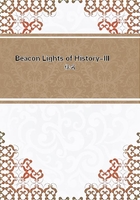
第203章
And as some scientific truths seemed to be adverse to Scripture declarations, the transition was easy to a denial of the inspiration which was claimed by nearly all Christian sects, both Catholic and Protestant.
The intolerance of the Church in every age has driven many scientists into infidelity; for it cannot be doubted that the tendency of scientific investigation has been to make scientific men incredulous of divine inspiration, and hence to undermine their faith in dogmas which good men have ever received, and which are supported by evidence that is not merely probable but almost certain. And all now that seems wanting to harmonize science with revelation is, on the one hand, the re-examination of the Scripture texts on which are based the principia from which deductions are made, and which we call theology; and, on the other hand, the rejection of indefensible statements which are at war with both science and consciousness, except in those matters which claim special supernatural agency, which we can neither prove nor disprove by reason; for supernaturalism claims to transcend the realm of reason altogether in what relates to the government of God,--ways that no searching will ever enable us to find out with our limited faculties and obscured understanding. When the two realms of reason and faith are kept distinct, and neither encroaches on the other, then the discoveries and claims of science will meet with but little opposition from theologians, and they will be left to be sifted by men who alone are capable of the task.
Thus far science, outside of pure mathematics, is made up of theories which are greatly modified by advancing knowledge, so that they cannot claim in all respects to be eternally established, like the laws of Kepler and the discoveries of Copernicus,--the latter of which were only true in the main fact that the earth revolves around the sun. But even he retained epicycles and excentrics, and could not explain the unequal orbits of planetary motion. In fact he retained many of the errors of Hipparchus and Ptolemy. Much, too, as we are inclined to ridicule the astronomy of the ancients because they made the earth the centre, we should remember that they also resolved the orbits of the heavenly bodies into circular motions, discovered the precession of the equinoxes, and knew also the apparent motions of the planets and their periods. They could predict eclipses of the sun and moon, and knew that the orbit of the sun and planets was through a belt in the heavens, of a few degrees in width, which they called the Zodiac. They did not know, indeed, the difference between real and apparent motion, nor the distance of the sun and stars, nor their relative size and weight, nor the laws of motion, nor the principles of gravitation, nor the nature of the Milky Way, nor the existence of nebulae, nor any of the wonders which the telescope reveals; but in the severity of their mathematical calculations they were quite equal to modern astronomers.
If Copernicus revolutionized astronomy by proving the sun to be the centre of motion to our planetary system, Galileo gave it an immense impulse by his discoveries with the telescope. These did not require such marvellous mathematical powers as made Kepler and Newton immortal,--the equals of Ptolemy and Hipparchus in mathematical demonstration--but only accuracy and perseverance in observations. Doubtless he was a great mathematician, but his fame rests on his observations and the deductions he made from them.
These were more easily comprehended, and had an objective value which made him popular: and for these discoveries he was indebted in a great measure to the labors of others,--it was mechanical invention applied to the advancement of science. The utilization of science was reserved to our times; and it is this utilization which makes science such a handmaid to the enrichment of its votaries, and holds it up to worship in our laboratories and schools of technology and mines, not merely for itself, but also for the substantial fruit it yields.
It was when Galileo was writing treatises on the Structure of the Universe, on Local Motion, on Sound, on Continuous Quantity, on Light, on Colors, on the Tides, on Dialing,--subjects that also interested Lord Bacon at the same period,--and when he was giving lectures on these subjects with immense eclat, frequently to one thousand persons (scarcely less than what Abelard enjoyed when he made fun of the more conservative schoolmen with whom he was brought in contact), that he heard, while on a visit to Venice, that a Dutch spectacle-maker had invented an instrument which was said to represent distant objects nearer than they usually appeared. This was in 1609, when he, at the age of fifty-five, was the idol of scientific men, and was in the enjoyment of an ample revenue, giving only sixty half-hours in the year to lectures, and allowed time to prosecute his studies in that "sweet solitariness"which all true scholars prize, and without which few great attainments are made. The rumor of the invention excited in his mind the intensest interest. He sought for the explanation of the fact in the doctrine of refraction. He meditated day and night.
At last he himself constructed an instrument,--a leaden organ pipe with two spectacle glasses, both plain on one side, while one of them had its opposite side convex, and the other its second side concave.